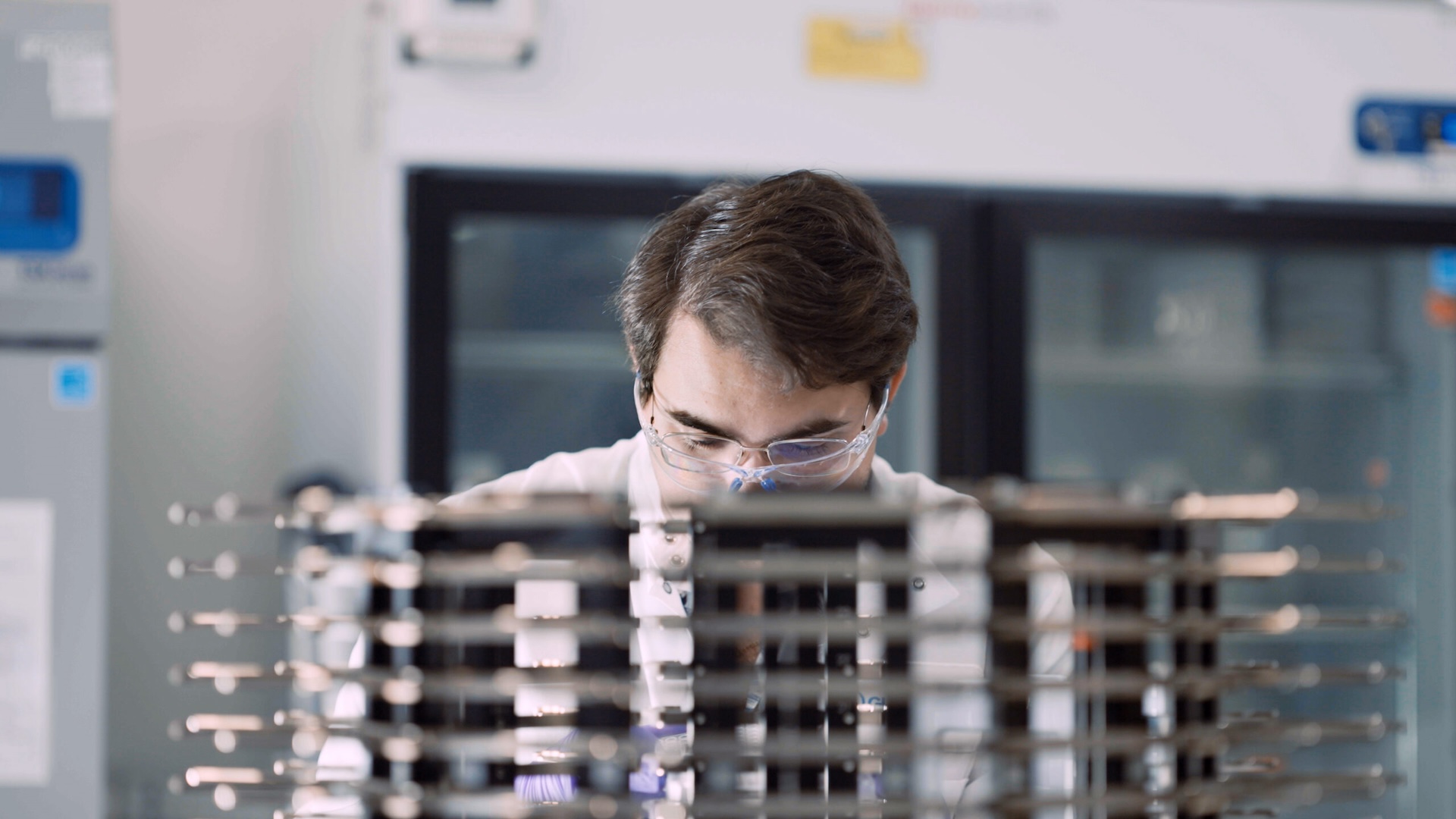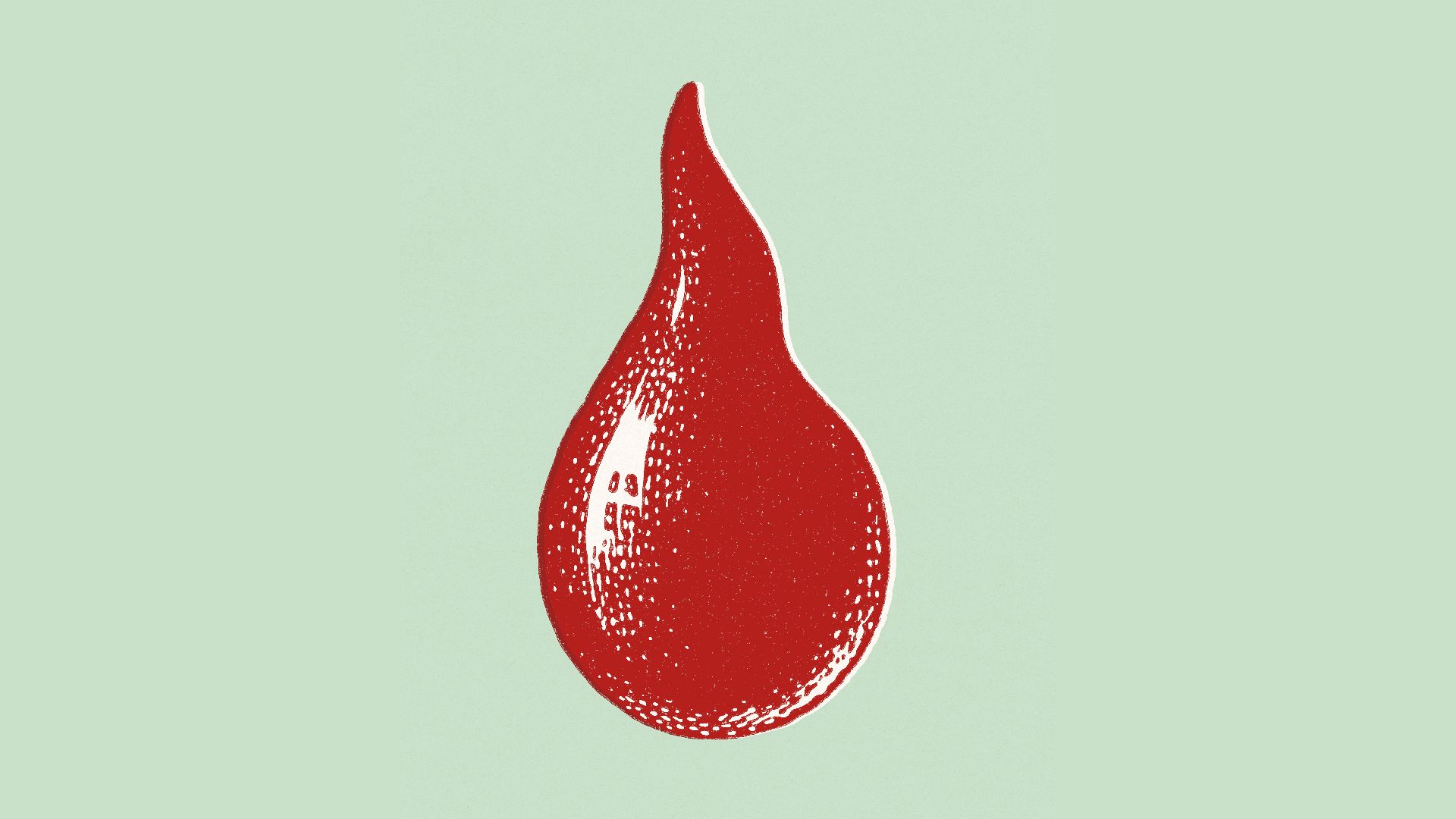Around four years ago, now 77-year-old John Gormly went for what was supposed to be a routine blood test. But the results were life-changing.
The test suggested Gormly had colon cancer, which a colonoscopy later confirmed was Stage 2, meaning the cancer had spread through the wall of the colon but not to his lymph nodes.

An early version of Guardant Health’s Shield test has been commercially available since 2022, but it wasn’t covered by insurance. However, after approval from the U.S. Food and Drug Administration (FDA) in July 2024, a diagnostic version of Shield was launched commercially and is now covered by Medicare.
Shield is only a blood drop in an ocean of emerging “liquid biopsies.”
Scientists have developed blood tests for several cancers, including those of the breast, pancreas and stomach. Some blood tests even detect multiple types of cancer. If these liquid biopsies can be rolled out widely, they could help detect cancer earlier, more easily, or with fewer invasive measures — which, in turn, could lead to earlier detection and fewer cancer deaths.
But many of these tests are still in their early stages. They often detect a lower fraction of cancer cases than gold-standard screening tools like colonoscopies do, meaning they will likely supplement, rather than replace, traditional screening methods. Others may have unacceptable rates of “false positives,” meaning a person is initially told they have cancer but diagnostic follow-ups show they do not. This can lead to needless worry or additional invasive tests. These include traditional biopsies, which involve removing tissue samples via needles or surgery. And for some diseases, it’s not clear that early diagnosis on a blood test will lead to better outcomes.
However, as these kinks are ironed out, it’s likely that blood-based cancer screening will become a normal part of our medical care — one that has the potential to improve cancer outcomes dramatically, experts say.

Simplifying screening
Gormly’s doctor recommended a Shield test after noticing that Gormly hadn’t had a colonoscopy in a while. He’s not alone. Current recommendations suggest that people ages 45 to 75 who are at average risk of colon cancer get a screening, such as a colonoscopy or a stool-based test, every five to 10 years. Yet around 1 in 3 of these people have never been screened.
That’s a problem, because colon cancer is the fourth-most-common cancer. Experts have argued that early detection could eliminate 90% of colon cancer deaths. It typically takes around 10 years for early, precancerous growths like polyps to morph into deadly cancer cells, and if these cells are caught early, they can easily be removed.
Despite the potential for early diagnosis and cure, many people avoid these screenings. This may be one reason colon cancer is the second-most-common cause of cancer death.
People avoid screenings for many reasons, said Dr. William Grady, a professor of translational science and therapeutics at the Fred Hutchinson Cancer Center in Seattle who helped lead the Shield trials. Some people feel embarrassed during screenings such as colonoscopy or fear that it may be painful, he told Live Science. Those opting for colonoscopy may struggle to get time off work, whereas others may dislike the idea of handling stool for a stool-based test, he said.
“That’s why there’s an opportunity for blood tests that is really powerful because people are inclined to do blood tests; they’re convenient and can be done during a health care encounter,” Grady said.
Shield works by detecting small DNA fragments that are released into the blood from colon cancer cells or precancerous cells called adenomas, a type of polyp. The test also picks up on subtle differences between cancerous cells and normal cells in chemical tags on DNA known as methyl groups.
In a paper published in March 2024 in The New England Journal of Medicine, Grady’s team showed that Shield detected 83% of colonoscopy-confirmed colon cancer cases in a cohort of almost 10,000 people. It also had a false positive rate of 10%.
Because Shield detects a smaller percentage of colon cancer cases than stool-based tests (92%) or colonoscopies (95%) do, it won’t replace those diagnostic tests, Grady said. However, it could expand the number of screening options available to patients, he added. This additional option may improve screening compliance, which could lead to earlier disease detection and thus a reduction in colon cancer deaths.
The Shield test is approved for use every three years, Grady said. However, current studies are investigating whether it would be more accurate if it were done every year or two, he added.
If Gormly’s cancer had spread to the rest of his body, it would have been much harder to treat. People whose colon cancer is caught at Stage 2, like Gormly, have an 85% chance of living at least another five years. By Stage 4, when it has spread throughout the body, those odds go down to just 10%.
“That could have been the end of me, so it [Shield] definitely changed my life,” Gormly said.

Accelerating diagnosis
Pancreatic cancer is another disease that could benefit from a blood-based diagnostic test. Unlike colon cancer, pancreatic cancer is relatively uncommon, affecting 1 in 56 men and 1 in 60 women. Yet pancreatic cancer is the third-most-common cause of cancer death in the U.S.
That’s because, by the time most people notice symptoms, such as abdominal pain or discomfort, the disease is already very advanced, said Ajay Goel, a professor and chair of the Department of Molecular Diagnostics and Experimental Therapeutics at the Beckman Research Institute of City of Hope in Duarte, California.
There is no broad-based screening program in the U.S. for people at average risk of pancreatic cancer. Later stages of the disease are easily detectable via MRI or CT scan, Goel told Live Science. But by that point, the five-year survival rate is extremely low: around 3% once the cancer has spread throughout the body, compared with 44% if it is still limited to the pancreas. Once cancer has spread beyond the pancreas, surgical removal is usually no longer possible, and treatments such as chemotherapy and radiotherapy are minimally effective.
A potential solution is a new blood test developed by Goel’s team. It aims to detect early-stage pancreatic cancer by identifying small cancer-specific molecules called microRNAs. These molecules regulate whether genes are switched on or off and are found in the blood of patients with early-stage disease, as well as inside exosomes, which are tiny packages that cancer cells release into the blood.
In a study of nearly 1,000 people, the test (which is still unnamed) detected between 88% and 93% of early- and late-stage pancreatic cancer cases, using blood drawn from people in the U.S., South Korea and China. When the test was modified to also measure the amount of a protein known as CA-19 in the blood, it picked up 97% of early-stage cases in the U.S. group. CA-19 is a known biomarker of pancreatic cancer, but on its own, it is not reliable enough to be used for diagnosis. When combined with CA-19 detection, the new test had a 5% to 10% false positive rate, Goel said.
The findings, which haven’t been peer-reviewed yet, were presented at the 2024 American Association for Cancer Research Annual Meeting in San Diego.
“If you can find more and more of these cancers early on, there is a hope that many of these patients can be cured,” Goel said.
The team envisages the test being taken yearly — for instance, when patients see their doctor for an annual physical exam. However, in those who have a family history of pancreatic cancer, it may make sense to test more frequently — perhaps every six months, Goel said.
If you can find more and more of these cancers early on, there is a hope that many of these patients can be cured.
Ajay Goel
Multicancer detection
Scientists are also developing multicancer detection (MCD) tests that screen for many types of cancer at once. MCD tests differ slightly in the types of cancer they detect and how they do it. But like many of the single-cancer detection tests, MCD tests look for cancer-specific molecules, such as tumor DNA, but on a larger scale. Some MCD tests sample urine or another bodily fluid in addition to blood.
In theory, such tests could not only provide a less-invasive approach to screening but also reduce the number of tests a person has to take at once. However, most of these tests are still in early development. The ones that are farther along, such as Grail’s Galleri and Exact Sciences’ Cancerguard, have not received FDA approval yet. And some experts have argued that the tests’ efficacy claims are overhyped.
Even if MCD tests do work and they become more affordable (Galleri, for example, currently costs around $950), experts still aren’t sure of the best way to use them. “There’s this belief that if we could only detect all cancers early, we would solve the cancer problem,” Ruth Etzioni, a professor at Fred Hutchinson who was not involved in Grady’s work with Shield, told Live Science. But sometimes there is no good treatment for early cancers, so catching them ahead doesn’t necessarily lead to improved outcomes.
And there’s always a risk of false positives. After taking an MCD test, patients may wait up to six months to know one way or the other, Dr. Jennifer Croswell, a medical officer at the National Cancer Institute, told Live Science. There may be many reasons for this delay, including that it takes time to perform multiple rounds of follow-up testing to figure out which organ is affected, she said. There are also currently no evidence-based clinical guidelines that tell doctors the best way to follow up on positive results from MCD tests, Croswell said. Consequently, these tests may create uncertainty for patients.
The way forward
While many diagnostic blood tests for cancer are still in the pipeline, at least some of these tests will likely affect diagnosis and treatment in the next several years. For instance, Goel and colleagues are now running a clinical trial to see if their test can detect early-stage pancreatic cancer in high-risk individuals who have not yet been diagnosed. If it’s successful, they intend to test it in the general population.
“I think if things go well, we foresee that probably in the next two to four years, this test should be on the marketplace to be used for early detection of pancreatic cancer worldwide,” Goel said.
Meanwhile, Grady’s team is planning to investigate whether Shield helps get more people screened for colon cancer who are often missed, such as underrepresented minority groups or those who live in areas with restricted health care access.
Shield is “the first of, I think, a whole series of tests that we’re going to be seeing coming up for screening for not only colon cancer but also for breast cancer, lung cancer, liver cancer,” Grady said.
Four years later, tests show Gormly is cancer-free. He hopes his experiences help others who may be tempted to skip colon cancer screening.
“I hope that as a result of this [speaking up],” he said, “someone else tries it and has the same success I did.”
Editor’s note: This article was first published March 21, 2025 and republished Oct. 17, 2025

